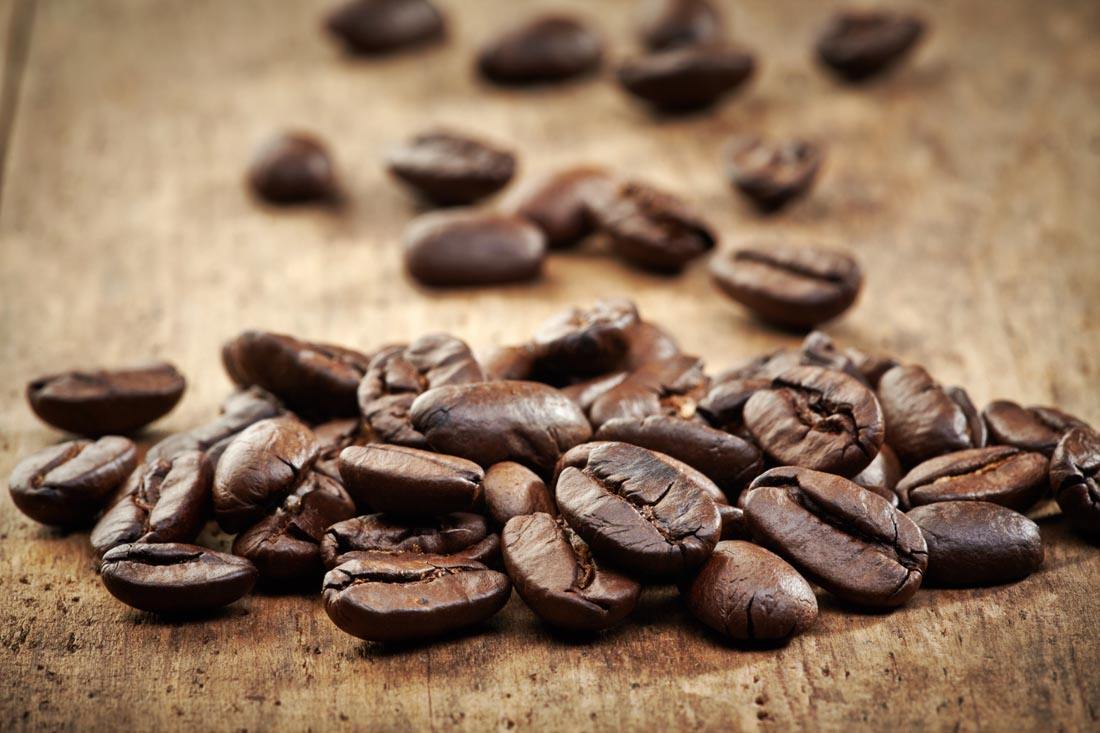Development Policy of Yunnan Coffee Industry and characteristics of Yunnan Coffee
Follow the caf é (Wechat official account vdailycom) and found that Beautiful Cafe opened a small shop of its own.
History of Yunka
The climatic conditions of Yunnan are similar to those of Colombia, mostly at a high altitude of 800-1600 meters, which is conducive to the production of boutique coffee. After many cup tests and comparisons by SCAA experts, it is proved that the quality of coffee beans in Yunnan is comparable to that of coffee in high altitude areas of Central America.

The first stage of ●: in 1892, French missionary Tian Deneng came to Zhukula Village in Binchuan, Dali for missionary activities and planted the first coffee bean here. In the spring of 1952, the scientific and technical personnel of Mangshi Branch of Yunnan Agricultural Experimental Field brought more than 70 kilograms of fresh fruit from Nongxian Village to Lujiangba in Baoshan City for trial planting, and found that they had good adaptability and good quality, and continued to grow. In the era of friendship between China and the Soviet Union, Baoshan coffee ushered in an opportunity for great development, exclusively for the Soviet Union.
The second stage of ●: from 1978 to 1988, most of the land reclamation systems tried to plant, this stage is a ups and downs stage, but also in the exploratory stage. In 1988, in order to reduce the influence of South American coffee planting base on coffee prices, Nestl é shifted its attention from Brazil, the largest coffee grower in the world, to Pu'er, which is the same latitude as Cuba, the hometown of coffee.
The third stage of ●: from 1988 to 2008, after Nestl é entered Pu'er in 1988, Yunnan coffee entered a stage of stable development, which lasted for 20 years. The stimulation of multinational groups has finally revived the cultivation of coffee in Yunnan, coupled with the gradual rise of the urban middle class in China, coffee has become a new way of life for urban white-collar workers. More multinational groups, including Maxwell and Starbucks, have also come to Yunnan.
The fourth stage of ●: after 2008, in the past 30 years, relying exclusively on agricultural initial processing, planting and export to the stage of not only agricultural export but also industry and brand compatibility, constantly building and improving the industrial chain.
Since Nestle and other companies started the history of purchasing coffee raw materials in Yunnan, coffee cultivation in Yunnan has entered the stage of transformation from traditional agriculture to modern agriculture, and the expansion of international trade is in parallel with the exploration of domestic potential market.
With the continuous maturity of the domestic coffee market and the domestic coffee industry chain, the planting area and output of coffee in Yunnan are also increasing. At present, coffee has been planted in Pu'er City, Baoshan City, Dehong Prefecture, Lincang City, Wenshan Prefecture, Xishuangbanna and other 9 states and 35 counties. By the beginning of 2016, China's coffee planting area exceeded 1.8 million mu, with a total output of 140000 tons, accounting for 1.5% of the global total output. Yunnan coffee planting area is 1.77 million mu, with a total output of 139000 tons, accounting for more than 99% of the country. Yunnan local coffee enterprises, such as Hougu, Lingfeng and so on ushered in the spring.
As a hub connecting South Asia and Southeast Asia, Yunnan Province is located at the pass of the world coffee producing countries such as Vietnam and Thailand in and out of the China-ASEAN Free Trade area. The regional coffee output of the neighboring countries has reached more than 2 million tons, accounting for 1% of the global coffee output. Yunnan has obvious "bridgehead" advantages in coffee trade and market.
In 2015, with the opening of China-EU international freight trains of "Yunnan New Europe" and "Chongqing New Europe", Yunnan coffee realized the parallel transportation of foreign trade goods by sea and land, and promoted the "blowout" growth of Yunnan coffee export trade. Yunnan coffee earned more than 400 million US dollars, accounting for 80% of the total foreign exchange earnings of China's coffee exports, nearly double that of the previous year. Coffee raw materials beans and deep processing products are exported to Western Europe, the United States, Japan, South Korea and other countries and regions.
At present, nearly 60% of Yunnan coffee production comes from Pu'er. By the end of 2015, the coffee planting area of Pu'er City has reached 755700 mu, with an output of 57900 tons, and coffee has been exported to more than 30 countries and regions, including America, Europe and Asia. Dehong Prefecture, as the "hometown of coffee in China", the coffee area has grown to 189300 mu, with an output of 17700 tons. By the end of 2015, the coffee industry in Lincang had built a coffee base of 491000 mu with an output of 16900 tons. Baoshan, as the earliest area of coffee industrialization in Yunnan Province, had grown to 187700 mu by the end of 2015, with an output of 28000 tons.
It is understood that the hot area of coffee that can be grown in Yunnan is about 5 million mu. Looking back in 2008, Yunnan has a coffee planting area of 350000 mu, with an output of 28000 tons, which has increased fivefold in just 8 years. As China's largest coffee export base, coffee export earns foreign exchange second only to vegetables and tobacco, ranking third. The output of coffee in Yunnan is expected to reach 150000 tons in 2016, and the price trend is good. Coffee has become one of the top ten agricultural stars of the next generation in Yunnan.
Important Notice :
前街咖啡 FrontStreet Coffee has moved to new addredd:
FrontStreet Coffee Address: 315,Donghua East Road,GuangZhou
Tel:020 38364473
- Prev

Distribution characteristics of Coffee growing areas in Yunnan, introduction of Yunnan Coffee
Following Cafe Review (official Wechat account vdailycom) found that Chinese Coffee has been growing for more than 100 years, but the coffee industry has been open for only 20 years. It is understood that the earliest coffee industry in China appeared in Hainan. Hainan's Lishen Coffee has built an annual production line with an annual output of 325 tons of instant powder, and more domestic three-in-one coffee brands are using power.
- Next

Nestl é supports Yunnan coffee industry and promotes its development.
Following Cafe Review (Wechat official account vdailycom) found that Beautiful Cafe opened a small shop of its own from the late 1980s to the present. Thanks to the efforts of Nestle to explore and cultivate, the industry finally realized the charm of Yunnan coffee for the first time in 2003. The word Yunnan coffee appeared for the first time in the futures exchange of the United States. Explore Yunnan Coffee as the first planting of Yunnan Coffee beans
Related
- Detailed explanation of Jadeite planting Land in Panamanian Jadeite Manor introduction to the grading system of Jadeite competitive bidding, Red bid, Green bid and Rose Summer
- Story of Coffee planting in Brenka region of Costa Rica Stonehenge Manor anaerobic heavy honey treatment of flavor mouth
- What's on the barrel of Blue Mountain Coffee beans?
- Can American coffee also pull flowers? How to use hot American style to pull out a good-looking pattern?
- Can you make a cold extract with coffee beans? What is the right proportion for cold-extracted coffee formula?
- Indonesian PWN Gold Mandrine Coffee Origin Features Flavor How to Chong? Mandolin coffee is American.
- A brief introduction to the flavor characteristics of Brazilian yellow bourbon coffee beans
- What is the effect of different water quality on the flavor of cold-extracted coffee? What kind of water is best for brewing coffee?
- Why do you think of Rose Summer whenever you mention Panamanian coffee?
- Introduction to the characteristics of authentic blue mountain coffee bean producing areas? What is the CIB Coffee Authority in Jamaica?

